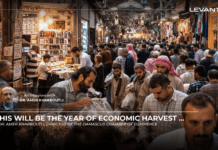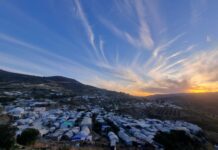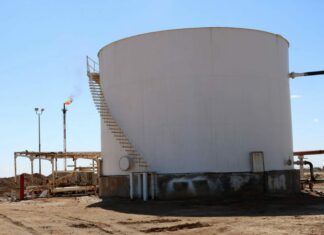
As the sacred month of Ramadan approaches, Muslims around the world prepare to embark on a journey of fasting, reflection, and spiritual growth. However, for those living amidst conflict and uncertainty in liberated northern Syria, the observance of Ramadan takes a different hue. The echoes of tradition and the resilience of faith intertwine with the harsh realities of war, displacement, and loss, painting a complex picture of Ramadan in a land under the shadow of 13 years of war.
Remembering Ramadans Past
Before the eruption of conflict over a decade ago, Ramadan held a special place in the hearts of Syrians, manifesting in the form of many traditions, the spirit of community, and joy. Professor Abdul Salam Muhammad al-Yusuf, who works in the field of humanitarian relief, fondly recalls the anticipation and excitement that accompanied the arrival of Ramadan. “Previously, Ramadan was something we eagerly awaited from year to year because of this blessed month where joy and smiles were widespread among people,” he reminisces.
Umm Abdulhadi, a widow living in Idlib City, shares similar sentiments, highlighting the significance of family gatherings and religious observances during Ramadan. “Ramadan meant a lot to us. Family gatherings were common, and we all engaged in religious rituals together,” she reflects, emphasizing the communal spirit and focus on immediate and extended family that once dominated the days before the revolution.
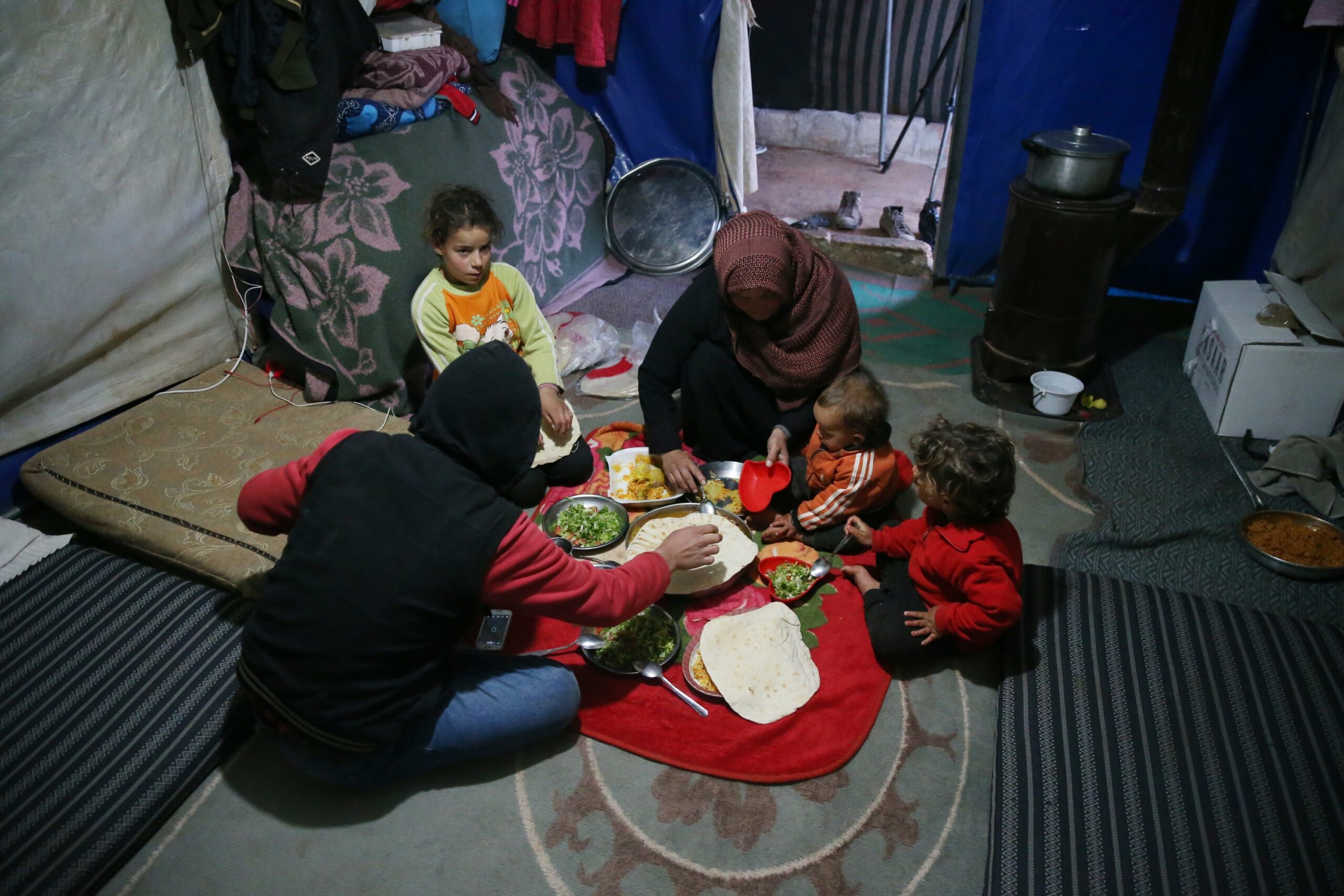
A mother of four, Umm Abdou, forced to flee her village, now lives in one of the many camps for the internally displaced people (IDP), acknowledges the differences in the season before the war, yet not all changes are bad, “Before the revolution, the Ramadan atmosphere was sweet, but now, they’ve become sweeter in terms of religion and Islam (since) my understanding and recitation of Quran has increased compared to before, praise be to Allah.”
Displaced and Scattered
Fast forward to the present, and the landscape of Ramadan in northern Syria has undergone profound changes. Al-Yusuf paints a sobering picture of life in the camps, where the joy of welcoming Ramadan has been overshadowed by fear and uncertainty. “I work as the director of the Al-Taher Camp in Batnatah, west of Maarat,” he told L24. The camp, located in the countryside of Aleppo, houses around 450 families which is over 2,000 people.
Two of the main aspects of Ramadan that have become simple memories for many are visiting family and frequenting the mosques, for special night prayers, Quran circles, seclusion, and special activities. “We cannot even visit each other or our relatives, as each of us is in a different country, with siblings scattered across displaced lands, refugee camps, and Europe,” said al-Yusuf. As for attending the mosques, he said, “Today, Ramadan is entirely different, the situation has changed significantly. There are no mosques nearby since we live on the mountainsides, and the significant financial hardship most families in the camp face prevents them from practicing the same Ramadan rituals as before.”

Al-Yusuf laments the financial hardships that exacerbate the challenges faced by families in the camps. Those like Umm Abdullah, a widow forced to live in the IDP camps. “Our way of life has changed,” Umm Abdullah agrees, “people used to live in their villages and homes, but now there is only hardship living in tents, and people are distant from each other due to these circumstances.” While communities and families have been scattered both internally and externally it’s not only dispersal that makes hearts heavy but a separation transcending uncrossable borders. “Every household suffers from the loss of their relatives and loved ones,” she says matter-of-factly.
At least half a million Syrians have been killed in the last 13 years, with some counts placing the numbers much higher. Add to the dead hundreds of thousands of people who have disappeared into the prisons of the regime and it becomes clear how so many households are have been shattered by the war. Umm Abdou, echoes the sentiment, describing a mix of sadness and joy upon the arrival of Ramadan. “At the same time, [we are] remembering the martyrs and imprisoned” she adds, highlighting the heavy toll of conflict on the community.
While many in Syria have been internally displaced over the years, with most residing in the liberated north, in greater Idlib or along the Turkish border and countryside of Aleppo, some have found themselves much further afield. “Qusay” is one such individual, forced to flee Eastern Ghouta in 2019, he has been in Istanbul for the last five years.

Economic Woes
For many in northern Syria, the most challenging aspects of Ramadan lies in economic instability. Al-Yusuf points to the intense fear and insecurity plaguing families in the camps, who struggle to provide for their basic needs, let alone celebrate Ramadan and Eid with traditional sweets and clothes. Those in the cities are no better off.
“I am a widow with orphans,” said Umm Abdulhadi who lives with her sister, mother and eight children in a two-bedroom apartment in Idlib City, “I’m struggling to raise my children with the best upbringing and provide them with the means to continue in life,” she explained. Her sister’s husband has been in prison for years and the women are forced to depend on their savings, charities and help from relatives and friends. “As for the Muslims around me,” she sighs, “some live in extreme poverty and hardship, while others live in excessive luxury without considering others.”
Unfortunately, their situation is not unique, with over 90% of the population below the poverty line and experiencing food insecurity. As the war drags on and international and private aid programs continue to dwindle, more and more Syrians have found themselves at wit’s end to get by.
Empathy, Unity and Admonishment
As Muslims around the world prepare to embark on the journey of Ramadan, the voices of those in northern Syria ring out with a poignant message of solidarity and hope. Al-Yusuf says, “we feel the need to think about our Muslim brothers and sisters in all Arab countries. We want them to empathize with us and think about us, to acknowledge that they must stand by us and support us in overcoming the difficulties we face.”
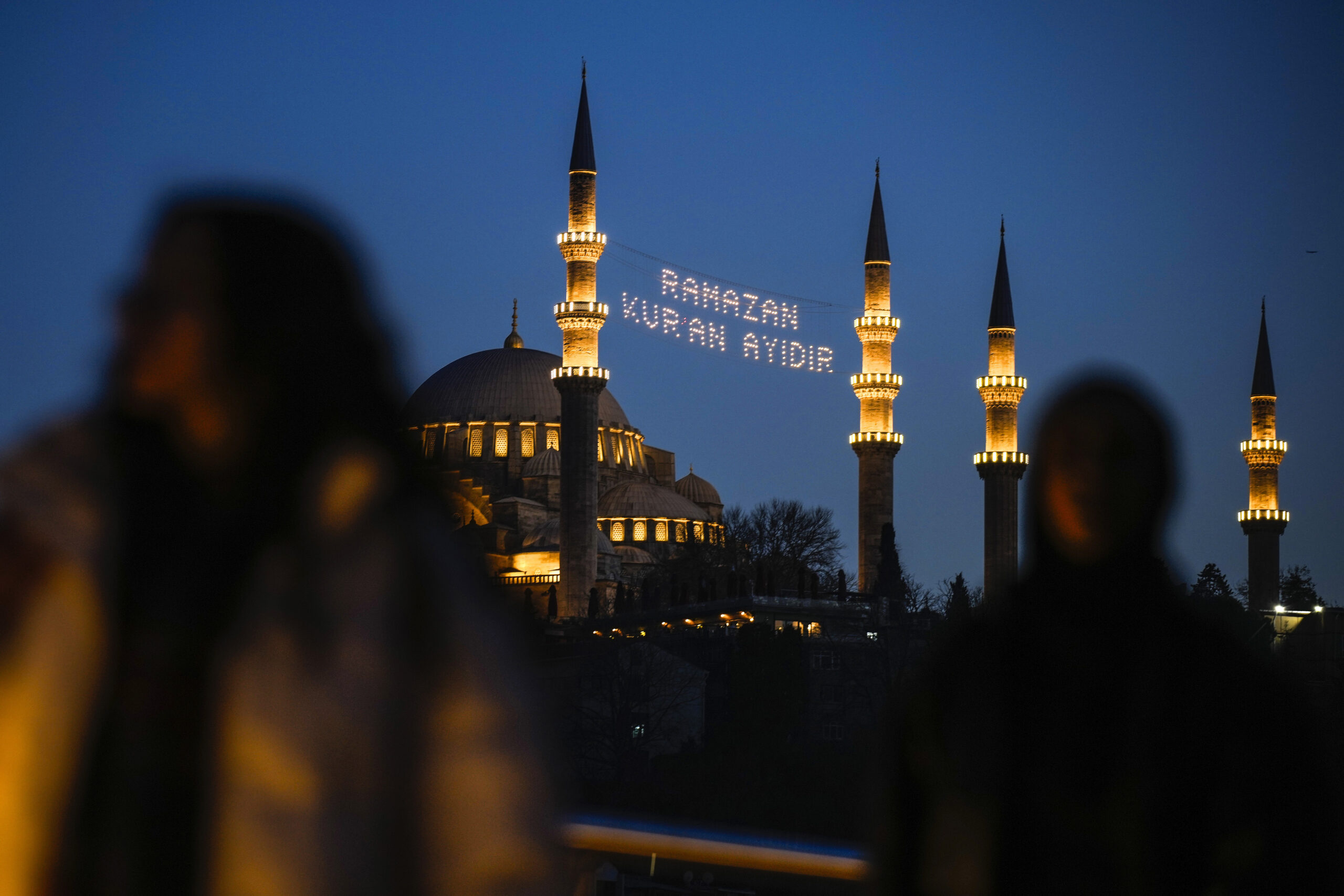
“We are a nation drowning in the sea of sins and injustice,” notes Umm Abdullah sadly, “Muslims are in heedlessness. The solution is to stand against injustices, restore justice to our lands, and return rights to their owners. Then the balances will return to their natural state. Muslims should return to Allah and return to Jihad in His path and lift the oppression from the oppressed.”
Umm Abdou shares a message of patience and resilience, “The state of Muslims is better than before,” she says hopefully, “We just need to be patient and hopeful because indeed, the patient will be given their reward without measure,” reminding fellow Muslims that help and reward awaits them in this world and hereafter so long as they persevere and think well of Allah. She summed up Ramadan saying, when it arrives it brings, “A mixed feeling of sadness and joy. The children are happy, but there’s a tear in your eye.”

